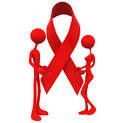By Ndidichukwu Odoh
In her first antenatal visit, Joy Umeh tested positive to HIV, She was counselled on how to go through the process of pregnancy, delivery and postnatal care without infecting her baby.
On every antenatal day, Joy and other women living with HIV gather in Asokoro General Hospital, in Abuja Nigeria, where they are given antiretroviral drugs, checked, and counselled.
“in one of the visits, the health worker gave me drugs, and asked me to show her how I take them at home, she also asked me the type of food I eat, she asked me if my husband or anyone at home treats me bad because of my health status, for once I felt happy someone cared” Joy told our reporter
Nigeria has made progress in reduction of stigma against women living with HIV at hospitals, homes and workplaces. At the Asokoro clinic antenatal visits are awesome moments for the women, beyond services provided, women are taught how to relax and feel safe, through songs, dance, and discussions.
“I feel better when I am visiting the clinic, because the atmosphere is free for all, there is no discrimination against me because of my HIV status, my pregnancy has been smooth and I am hopeful to have a baby that is negative, because my drugs are available and I take them as recommended” Joy said
Joy is one out of 1 000,000 Nigerian women of child bearing age living with HIV, while Joy has access to treatment and Psycho-social support, many women are discriminated against for living with HIV.
According to United Nations Children’s Fund (UNICEF) report on PMTCT, new HIV infections among young women aged 15–24 years were less than double those among young men.There are about 26 000 new infections among young Nigerian women, compared to 15 000 in young men.
UNICEF also says of all adults aged 15 years and over living with HIV, 55% were on treatment, while only 35% of children aged 0–14 years living with HIV were on treatment.
“despite all the support people living HIV in our network get, we still advocate that services be improved to incorporate psycho-social support for the women, it is difficult because a pregnant woman who is living with HIV has so much burden to deal with, she is thinking of her pregnancy, her health, the unborn child and the husband who may also be positive said Victor Omosheyin, Coordinator, Network of People Living with HIV/AIDS in Nigeria.
Omosheyin said, “These women are the strongest people on earth, the least we can do is improve how to support them to relieve the burden. Something as little as calls with words of encouragement can go a long way, stigma kills faster than the virus”.
The 90–90–90 targets envision that, by 2020, 90% of people living with HIV will know their HIV status, 90% of people who know their HIV-positive status will be accessing treatment and 90% of people on treatment will have suppressed viral loads.
In terms of all people living with HIV, reaching the 90–90–90 targets means that 81% of all people living with HIV are on treatment and 73% of all people living with HIV are virally suppressed.
“Being virally suppressed for a pregnant woman living with HIV is essential and she needs to also be psychologically sound to raise a baby, most of the women do not visit hospitals again after they have experienced very bad treatment by the health workers” said Abiola Davis, UNICEF HIV/AIDS and PMTCT specialist.
“beyond getting the women to queue and take the drugs, there has to be counselling and support, the health workers are trained to provide such and follow-up on the women to ensure that they are well enough to give birth to negative babies” said Davis
According to UNAIDS, 2018 in Nigeria, 67% of people living with HIV knew their status. 53% were on treatment and only 42% were virally suppressed.
A rather unfortunate situation in Nigeria is that only Forty-four per cent of pregnant women living with HIV like Joy accessed antiretroviral medicine to prevent transmission of the virus to their baby, preventing 7200 new HIV infections among newborns. Early infant diagnosis of HIV-exposed infants tested for HIV before eight weeks of age stood at 18% in 2018.
Like Joy, Nigerians women are disproportionally affected by HIV of the 1 800 000 adults living with HIV, 1 000 000 (55.56%) were women.
Eliminating Mother-to-child transmission of HIV in Nigeria requires improved surveillance of the epidemics, domestic funding. Increased sites for HIV counselling and testing, with proper program that ensures women living with HIV are psychologically supported and are able to withstand the pressure that comes with fighting for survival in a stigma oriented country like Nigeria. The women are also to be properly sensitized to know when to seek redress when their rights and privileges are deprived due to their status























